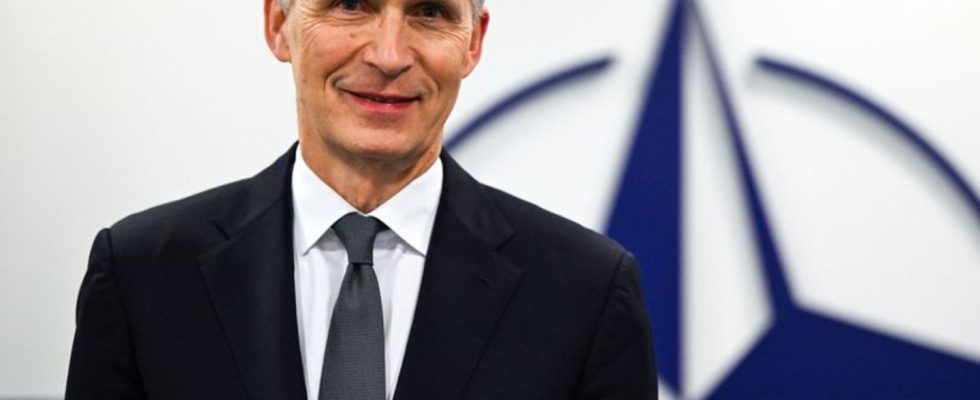Ukraine war
NATO Secretary General: Putin’s war goal not achievable
“President Putin has lost Ukraine forever,” says NATO Secretary General Jens Stoltenberg. photo
© Federico Gambarini/dpa
With its war of aggression against Ukraine, Russia wants to prevent the country from becoming a member of NATO. Will Moscow achieve its goal? The NATO Secretary General has an answer.
NATO Secretary General Jens Stoltenberg assumes that Russia will achieve its war goals in the Despite great military efforts, we can no longer reach Ukraine. The purpose of the invasion ordered by President Vladimir Putin was to prevent Ukraine from moving towards NATO and the European Union, he said in an interview with the German Press Agency shortly before Christmas. After almost two years of war, Ukraine is now closer to NATO and the EU than ever before.
“President Putin has lost Ukraine forever,” said Stoltenberg, noting that Russia saw Ukraine as part of its sphere of influence for decades. This is a major strategic defeat for Russia. He is absolutely certain that Ukraine will at some point achieve its goal of joining NATO.
Stoltenberg also pointed out that Russia is paying an enormously high price for its war. The country has already lost hundreds of aircraft and thousands of tanks and 300,000 soldiers have been killed or wounded. As a result of the war, inflation increased and living standards fell. Russia is also more politically isolated than before.
No sign of policy change
At the same time, Stoltenberg warned against relying on a quick end to the war in view of the developments and against believing that Putin will change course after his expected re-election on March 17th. “We have no signs that Putin will change his goals and his policies,” said the former Norwegian prime minister. “He will continue to try to occupy more territories.”
From Stoltenberg’s point of view, this means that NATO and the 31 member states must continue to support Ukraine resolutely. “The Ukrainians have shown that they are able to defend themselves, to defend themselves, especially when they receive weapons from Germany and many other NATO countries,” he said.
Stoltenberg appeals to the allies
Specifically, Stoltenberg called on the Allies to examine whether more military equipment could be made available to Ukraine through changes to existing agreements with third countries. “Overall, we need to ramp up our production to better help Ukraine and better protect ourselves,” he said.
It had previously become apparent that the EU plans to deliver one million artillery shells to Ukraine by spring 2024 would fail. One reason for this is that it is estimated that at least 40 percent of production is currently exported to third countries. The question is actually whether we need to export as much to third countries as we currently do, said Stoltenberg.
No advice on mobilization
In the interview, Norwegian did not want to comment on the discussions about the possible mobilization of additional soldiers in Ukraine. “I will be careful not to give President Zelensky any advice on how best to conduct the war,” he said. “Nobody knows the need for soldiers better than the Ukrainians.”
In the interview, Stoltenberg only briefly commented on his planned departure from the office of Secretary General next autumn and the application of the outgoing Dutch Prime Minister Mark Rutte to be his successor. “Mark is a friend and he is a capable prime minister with a lot of experience. (…) But it is not for me to make a recommendation about who should succeed me,” said the 64-year-old.
The Trump scenario
With a view to Donald Trump’s possible return to the White House after the presidential election in the USA, Stoltenberg was comparatively relaxed. “I am confident that the United States will remain committed to the transatlantic partnership – regardless of who is elected president,” he said. NATO makes the United States safer and stronger. No other major power in the world, neither Russia nor China, has anything comparable to what the United States has with NATO.

